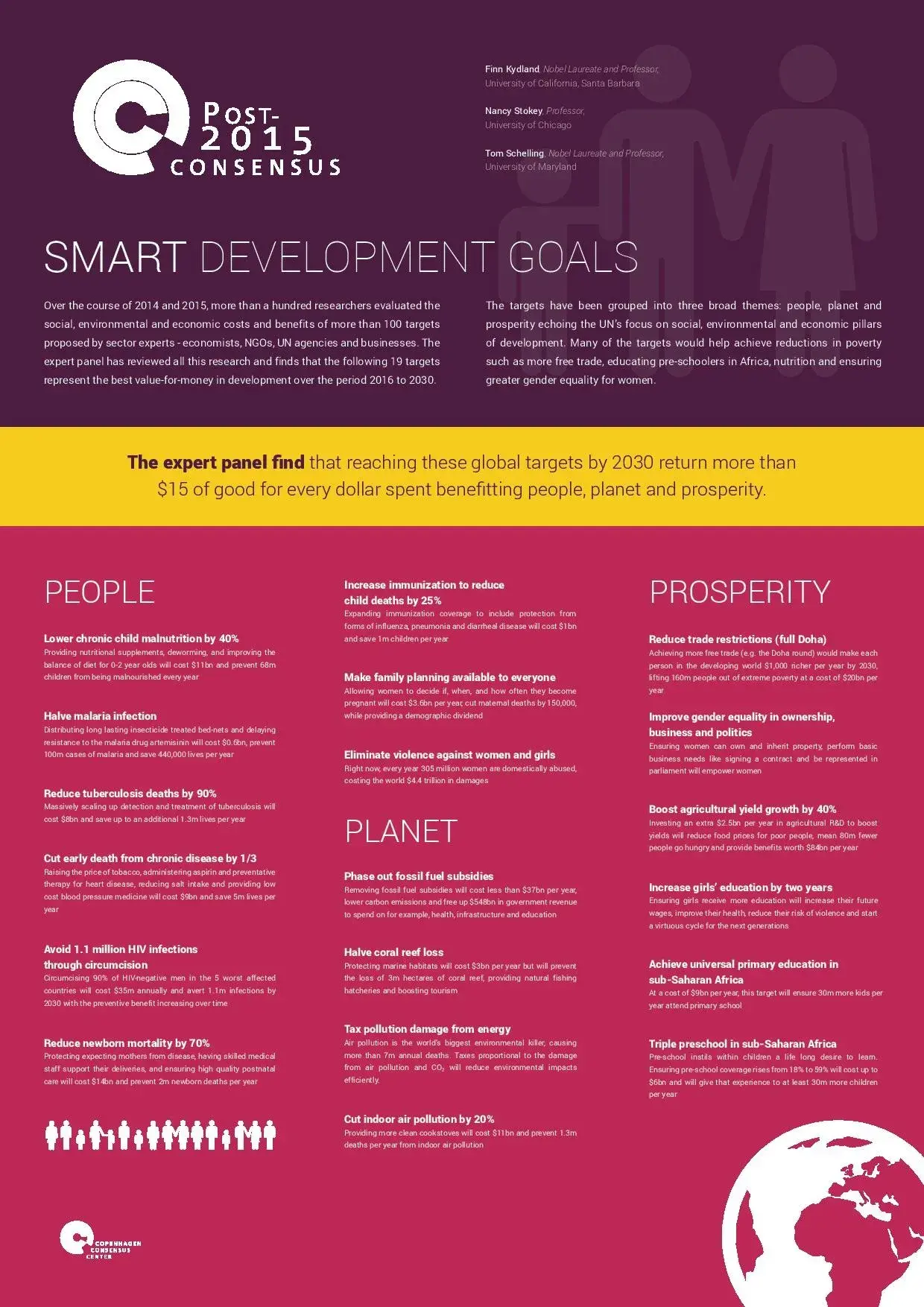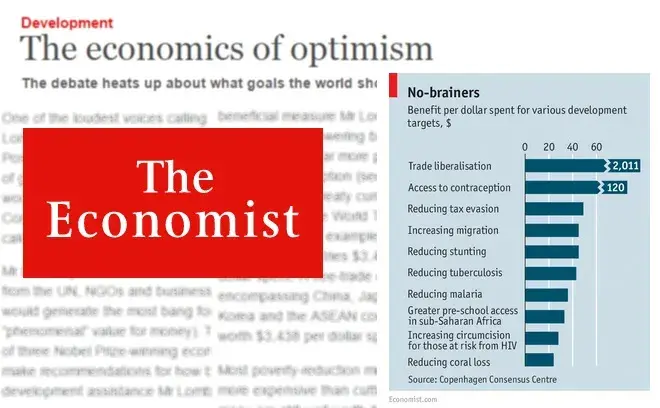Air Pollution: What's the smartest SDG target?

Air pollution is the world’s deadliest environmental problem. It kills 7 million people each year, or one in eight deaths globally. 4.3 million of these deaths are due to 2.8 billion people in the developing world who cook and keep warm inside their homes, by burning dung, firewood and coal – filling their living spaces with smoke and pollutants. Indoor air pollution from cooking and heating with open fires is equivalent to smoking two packets of cigarettes a day.
How do we best address this problem?
As reported in China Daily, The Times (UK), The Australian and multiple Latin American newspapers (e.g. El Universal, Venezuela) providing 50% of these 2.8 billion people with improved cooking stoves – which dispels smoke outside through chimneys and vents, is one effective solution. The stoves are cheap and provide numerous benefits in terms of time, fuel and importantly health. It will save almost half a million deaths each year, and avoid 2.5 billion disease days. For every dollar spent we do $10 worth of good.
However, giving people improved cookstoves is not a panacea for air pollution, even if everyone has one. Why? Because improved cook-stoves, still pollute inside (but less) and at the same time worsen the situation outside by blowing smoke into the community.
Instead, we should aim to eventually have everyone use smoke free sources such as LPG stoves or electricity. The benefits from using LPG stoves are greater, but the costs much greater, so every dollar invested does $2 worth of good.
For outdoor air pollution, the problem is even more difficult. Globally, reaching the WHO’s targets for air pollution, through low-sulphur diesel and car filters is too expensive relative to the benefit.
You can read all the papers on air pollution here and download the one page PDF here.
The smartest targets for the post-2015 development agenda
What are the smartest targets for the post-2015 development agenda?
In a world of limited resources, we can’t do everything, but how should we prioritize? The Copenhagen Consensus Center provides information on which targets will do the most social good relative to their costs. The final decision on choosing goals will definitely rest on a number of factors, not just economics – but knowing the costs and benefits provides an important piece of information.
The Post-2015 Consensus brought together, renowned experts from the UN, NGO and private sectors with 60 teams of economists to produced 100+ research papers to establish the most effective targets for the post-2015 development agenda within 22 core issue areas: Air Pollution, Biodiversity, Climate Change, Conflict & Violence, Data for Development, Education, Energy, Food Security, Gender Equality, Governance & Institutions, Health: Chronic Diseases, Health: Health Systems, Health: Infant Mortality & Maternal Health, Health: Infectious Diseases, Infrastructure, Illicit Financial Flows, Nutrition, Population & Demography, Poverty, Science & Technology, Trade, and Water & Sanitation.
An Expert Panel including two Nobel Laureates has reviewed all of this research and identified 19 targets that represent the best value-for-money in development over the period 2016 to 2030.
Only have three minutes? Watch our introduction video to the Post-2015 Consensus project.

Making prioritization a factor in the post-2015 debate
An overview of Copenhagen Consensus' ground-breaking research which is shaping the thinking for the 193 governments about to prioritize the smartest development goals for 2016-2030. If you've just read the article in The Economist you might be interested in exploring more about our project, and the research we've undertaken so we have put together an online supplement with more in-depth information.


